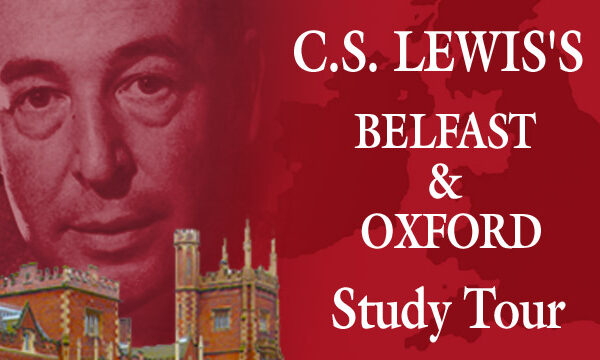Back to series



A Story of God's Hospitality, Grace, and Redemption
Click here to open a Print - Friendly PDF
As I watched my son and the other actors sing the final notes of the chorus, the audience rose as one in thunderous applause. Men and women alike wiped away tears of deep emotion. It was one of those rare moments when everyone in the room knew that we had witnessed something exceptional.
As a father of one of the performers in Lake Braddock Secondary School’s 2012 musical production of Victor Hugo’s Les Misérables, I was naturally proud of what the cast had accomplished.
But they had gone beyond our proud-parent expectations and created one of the most powerful experiences many of us had had in years.
I had to ask, “How is it that this bunch of talented public high school students had been able to inspire the hearts and minds of busy, distracted, suburban moms, dads, kids, grandparents, friends, and neighbors? What was their secret?” Could the young actors’ sincerity and enthusiasm, the powerful musical score, and the inherent message of God’s grace within Hugo’s masterpiece have created the perfect storm to stir up our hearts? If so, is there a lesson in Les Misérables for those of us who follow Christ and would like to be more effective in communicating God’s grace to others?
On Christmas Day 2012, Hollywood will be releasing a new film version of the musical, Les Misérables, starring Hugh Jackman, Russell Crow, and Anne Hathaway. Whether or not the Hollywood film will have the same success as the Lake Braddock production in its ability to touch the human heart may depend on how true it remains to the themes of God’s loving hospitality, grace, and redemption found in Victor Hugo’s original work.
If it does, it may provide followers of Jesus with some opportunities for meaningful conversations at home and around the water cooler at work.
In 1985, when the Royal Shakespeare Company introduced the world to Boublil and Schönberg’s musical, Les Misérables, it got less than favorable reviews. Most critics didn’t think it would last a year. Christopher Edwards echoed many when he panned it as being “sentimental and melodramatic.”1 However, the fans, not the critics, got the last word as the musical went on to become a phenomenon with one of the longest runs in history on the West End and on Broadway.
Could it be that postmoderners who have been told that they need to fend for themselves in a world without God were captivated by Hugo’s alternative worldview?

Hugo’s book and the musical adaptation portray a very real and broken world in which “les misérables,” the downtrodden of the world, suffer greatly as a result of ignorance, injustice, poverty, and degrading laws and customs. This could describe much of the world as we know it today. However, as John Morrison writes,
Les Misérables also offers a solution in the redemptive journey of one man who discovers the nature and power of love and forgiveness . . . for Hugo what matters most is the substance of Jean Valjean’s surrender, the passion which comes to define and direct his life, a passion which participates ultimately in The Passion, the Passion of Christ.2
In other words, Les Misérables presents the hope found in the good news of Jesus that can’t be found in pessimistic postmodern philosophy.
Les Mis, as the musical has come to be known, uses the power of the arts—drama, music, and literature—to point people to age-old but now often discounted truths about God, human nature, and the longings of the human heart. C.S. Lewis believed that the arts play an essential role in helping people understand and communicate truth. He writes, “For me, reason is the natural organ of truth; but imagination is the organ of meaning. Imagination, producing new metaphors or revivifying old, is not the cause of truth, but its condition.”3 In other words, to fully understand a word or concept, we need to have an image that corresponds with it.
We often understand truth much better when we get it through an image, a story, or a song. Many who have read Hugo’s novel and seen Boublil and Schönberg’s musical speak of how the two art forms, novel and musical, complement and illuminate each other using the power of the arts to communicate to both the mind and heart.
So what is it about the story and images in Les Misérables that have so mesmerized readers and audiences around the world? Interestingly, when Hugo’s book was first released in 1862, it too, like the modern musical, was dismissed by the critics and predicted to be a literary failure. The Atlantic Monthly wrote, “Its morbid elements are so combined with sentiments abstractly Christian that it is calculated to wield a more pernicious influence than Byron ever exerted.”4
Addison Hart points out:
I believe that the Atlantic Monthly critic stumbled on . . . one key for understanding the perennial appeal of Les Misérables . .. That key is simply the phrase “sentiments abstractly Christian.” . . . If by “sentiment” we mean “a thought prompted by feeling,” then “sentiments abstractly Christian” are a positive good; and it should be encouraging to those of us who are Christians that such “sentiments” are seen to hold appeal for men and women everywhere . . . for which many hearts yearn.5
So what are some of those “sentiments abstractly Christian” for which many in our world yearn as revealed in Hugo’s work? While Hugo discusses many ideas, three biblical themes stand above the rest: the disarming power of hospitality given in the name of Jesus, God’s offer of grace to the undeserving, and the Spirit’s redemptive power as demonstrated through the transformed lives of those who choose to follow Christ.
The backdrop for Les Mis is the French Revolution and the years following—one of the most tempestuous and violent periods in French history. Hugo’s own preface describes this age as having three serious problems, “the degradation of man by poverty, the ruin of woman by starvation, and the dwarfing of childhood by physical and spiritual night.”6
It was a time of unjust laws, social unrest, and great suffering. In the midst of this background of turmoil, human depravity, and the anger of revolution, Hugo weaves his powerful tale of redemption. The story centers around the life of Jean Valjean, a convict sentenced unjustly to nineteen years of hard labor and a lifetime of probation for the crime of stealing a loaf of bread to feed his family.
The musical begins as Jean Valjean is released from prison. As he struggles to reassert his humanness by stating his name, “I am Jean Valjean,” the antagonist, the inspector of the law, Javert, seeks to remind him that he will always be a felon, known only to the state by the number 24601. As Valjean begins his journey, Javert’s words appear to be prophetic as Valjean wanders from place to place, an outcast and pariah in society.
None will take him in to provide him with food and shelter from the elements. Valjean’s heart is bitter and hard when in desperation he knocks upon the door of Monseigneur Bienvenue, a humble priest who has risen in the ranks of the clergy to become a bishop.
The bishop’s French name, Bienvenue, means “welcome,” and he lives out the reality of his name by opening his door and offering the bedraggled criminal Valjean a meal of bread and wine (symbolic of Jesus’ Last Supper), a meal that nourishes both soul and body.
In the musical the bishop sings, “There is wine here to revive you . . . . There is bread to make you strong. There’s a bed to rest ‘till morning. Rest from pain and rest from wrong.”7
The novel’s dialogue at this point is moving. Shocked, Valjean states, “Monsieur Curé, you are good; you don’t despise me. You take me into your house; you light your candles for me, and I haven’t hid from you where I come from, and how miserable I am.”
The bishop, who was sitting near him, touched his hand gently and said,
You need not tell me who you are. This is not my house; it is the house of Christ. It does not ask any comer whether he has a name, but whether he has an affliction. You are suffering; you are hungry and thirsty; be welcome . . . Your name is my brother.8
This act of hospitality by the bishop reflects the love that Jesus has for all who are miserable and suffering. All people are created in the image of God, and no matter how low they have fallen within the social hierarchy of this world, they have dignity and worth and should be recognized and treated with respect.
It will be this gift of hospitality that opens the door of Valjean’s heart for even greater things to come. Hospitality, the kind welcoming of the stranger or friend, is the biblical virtue that creates the environment in which hearts can be softened and turned toward the Light.
Awaking early from his comfortable bed, Valjean walks into the kitchen and sees the silver tableware in the cupboard. The temptation is too much for him, and he quietly places the silver in his sack and steals away. When the bishop’s cook discovers that the silver is missing she is distraught.
Her suspicions are confirmed when several policemen arrive with the thief in hand. Valjean is quivering in fear, knowing that he’s been caught red-handed. He’s going back to prison. All hope is lost. His freedom has vanished.
Suddenly the compassionate bishop looks at Valjean and (in the novel) says, “Ah, there you are! I’m glad to see you. But! I gave you the candlesticks also, which are silver like the rest, and would bring two hundred francs. Why did you not take them along with your plates?”9
In an instant, Valjean is released and is free to go. The priest has absolved him of his crime. Then Bienvenue walks over to the mantel, picks up the candlesticks, and hands them to Valjean. In this pivotal moment of the musical, the bishop tells Valjean of “some higher plan.” He sings, “You must use this precious silver to become an honest man. By the witness of the martyrs, by the Passion and the Blood, God has raised you out of darkness; I have bought your soul for God.”
 God’s grace has fully entered the scene as He lovingly stoops down to offer Valjean a new beginning in life through the words and actions of the bishop. Bienvenue has given his silver candlesticks to Valjean, sharing the light of Christ with a broken man, exhorting him to receive this gift and become an honest man. This free offer of grace, at first is too much for Valjean to fathom. He is dumbfounded. Probably because, as Philip Yancey writes, “The world thirsts for grace. When grace descends, the world falls silent before it.”10
God’s grace has fully entered the scene as He lovingly stoops down to offer Valjean a new beginning in life through the words and actions of the bishop. Bienvenue has given his silver candlesticks to Valjean, sharing the light of Christ with a broken man, exhorting him to receive this gift and become an honest man. This free offer of grace, at first is too much for Valjean to fathom. He is dumbfounded. Probably because, as Philip Yancey writes, “The world thirsts for grace. When grace descends, the world falls silent before it.”10
In Valjean’s world, the world of the French Revolution, guillotine not grace comes to mind as the symbol of the age. And in our postmodern world, the lust for more—greed—seems to be the operative word as opposed to grace. And yet, both in the world of Les Misérables and our world today, people yearn and thirst for grace. God’s loving message of grace as expressed through the shed blood of His Son on the cross, so that we might be raised with Him in new life, out of darkness, is the good news. It is the gospel that men, women, and children long to hear.
Upon leaving the presence of the bishop, Valjean stumbles around in a stupor, trying to understand what has just happened to him. He is forced to come to a point of decision: to continue in his hardened, sinful ways, or to surrender to the loving grace of God, accept God’s forgiveness, and devote himself to sharing God’s candlesticks and grace with others.
In the musical he finally falls down in prayer and sings, “Sweet Jesus, what have I done? . . . I feel my shame inside me like a knife. He told me that I have a soul. How does he know? What spirit came to move my life? . . . I stare into the void, to the whirlpool of my sin. I’ll escape now from the world… Another story must begin!” Jean Valjean has been born again.
God has redeemed the hard-hearted criminal Jean Valjean. The word redeemed means “to buy back,” and Valjean’s life has been bought back or purchased by God. He has been the recipient of God’s hospitality through the bread and wine served by the priest who acknowledged his dignity and worth as a human being.
He has experienced God’s grace, through the light of the candlesticks, as his soul was purchased by the blood of Christ. He has now been raised up, a redeemed follower of Christ. From this point on in Hugo’s story, we see in dramatic fashion the influence, impact, and power of Jean Valjean’s transformed life as he sacrificially shares the light of Christ with others. He will come to the aid of Fantine, whose name means “childlike,” as she is one of the “little ones” whom Christ spoke of who has been abused and led astray by the world.
He adopts Fantine’s child Cosette, rescuing her from the evil Thénardiers, a family whose antipathy for God comes out in their selfish greed and disdain for others. Throughout most of the rest of his life, Valjean will also face his accuser, Javert, the symbol of the law, the antithesis of mercy and grace.
Eventually Javert himself will be faced with the offer of God’s grace, through the life of Valjean. Rather than surrender to God’s grace, Javert will end his own life in rebellion against the loving, grace-offering God.
At the end of Jean Valjean’s life, we can see that he has learned the truth spoken by another John, that “God is love”; the candlesticks shine brightly around his face as he sings this prayer in the musical: “God on high, hear my prayer. Take me now to thy care. Bring me home. . . . Forgive me all my trespasses and take me to your glory.” Valjean is at peace with God.
The music and the words of the song reveal to the audience, if just for an instant, the hope that awaits all who put their trust in Christ.
The final line of the musical, “To love another person is to see the face of God,” reflects the words of Scripture when, upon their reunion, Jacob says to Esau, “To see your face is like seeing the face of God.”
Victor Hugo’s classic Les Misérables, whether experienced through his novel or the musical adaptation, will continue to touch hearts and minds, for deep down within us all is the yearning to know God’s loving hospitality, grace, and redemption. As Jesus’ followers imitate Bienvenue and Jean Valjean and share their grace-filled candlesticks with strangers, more will find hope in this dark world.
Notes:
1. Christopher Edwards, Spectator, October 19, 1985.
2. John Morrison, To Love Another Person: A Spiritual Journey through Les Miserables (Cheshire, CT: Zossima Press, 2009), 4.
3. C.S. Lewis, “Bluspels and Flalansferes,” in Selected Literary Essays 1969.
4. Atlantic Monthly, July 1862.
5. Addison H. Hart, “Sentiments Abstractly Christian.” Touchstone: A Journal of Mere Christianity, May–June 1998.
6. Victor Hugo, Les Misérables (New York: Fawcett Books, 1961), xi., Trans. Charles E. Wilbour.
7. Alain Boublil and Claude-Michel Schönberg, Les Misérables: The Complete Libretto, accessed September 20, 2012, https://point11.tripod.com/lmlyric1.htm.
8. Hugo, Les Misérables, 18–19.
9. Ibid., 32.
10. Philip Yancey, What’s So Amazing about Grace? (Grand Rapids: Zondervan, 1997), 282.

Joel Woodruff
President, C.S. Lewis InstituteJoel Woodruff, President, C.S. Lewis Institute, has worked in higher education, “tent-making,” nonprofit administration, and pastoral ministries in Alaska, Israel, Hungary, France, and Northern Virginia. He served as Dean of Students, Chaplain, and Professor of Bible & Theology at European Bible Institute, where he helped train Europeans both for professional ministry and to be Christian leaders in the marketplace. Prior to joining the Institute, he was on the leadership team of Oakwood Services International, a nonprofit educational and humanitarian organization. He is a graduate of Wheaton College, earned his M.Div. from Gordon-Conwell Theological Seminary, and has a doctorate in Organizational Leadership from Nova Southeastern University. As a Parish-Pulpit Fellow, he studied Biblical Backgrounds & Archaeology in Israel for a year.

 COPYRIGHT: This publication is published by C.S. Lewis Institute; 8001 Braddock Road, Suite 301; Springfield, VA 22151. Portions of the publication may be reproduced for noncommercial, local church or ministry use without prior permission. Electronic copies of the PDF files may be duplicated and transmitted via e-mail for personal and church use. Articles may not be modified without prior written permission of the Institute. For questions, contact the Institute: 703.914.5602 or email us.
COPYRIGHT: This publication is published by C.S. Lewis Institute; 8001 Braddock Road, Suite 301; Springfield, VA 22151. Portions of the publication may be reproduced for noncommercial, local church or ministry use without prior permission. Electronic copies of the PDF files may be duplicated and transmitted via e-mail for personal and church use. Articles may not be modified without prior written permission of the Institute. For questions, contact the Institute: 703.914.5602 or email us.
-
Recent Podcasts
A Welcome Change in Apologetics
by Randy Newman, Aimee Riegert on April 19, 2024We’re burdened for our friends who don’t know...Read More
-
Questions That Matter Podcast – Samuel James and Digital Liturgies
by Samuel James, Randy Newman on April 19, 2024
-
The Side B Stories – Dr. James Tour’s story
by Jana Harmon, James Tour on April 12, 2024
-
Recent Publications
Isn’t Morality Relative?
by Christopher L. Reese on April 1, 2024It is widely accepted in the Western world...Read More
-
Do Muslims and Christians Worship the Same God?
by Andy Bannister on March 1, 2024
-
Artificial Intelligence and Its Impacts on Humanity
by John Lennox on February 13, 2024
0
All Booked
0.00
All Booked
0.00
All Booked
20599
GLOBAL EVENT: 2024 Study Tour of C.S. Lewis’s Belfast & Oxford
https://www.cslewisinstitute.org/?event=global-event-2023-study-tour-of-c-s-lewis-belfast-oxford-2&event_date=2024-06-22®=1
https://www.paypal.com/cgi-bin/webscr
2024-06-22

Next coming event
Days
Hours
Minutes
Seconds
GLOBAL EVENT: 2024 Study Tour of C.S. Lewis’s Belfast & Oxford
On June 22, 2024 at 12:00 pmat Belfast, Northern Ireland & Oxford, EnglandSpeakers

Joel Woodruff
President, C.S. Lewis Institute
Team Members

Joel Woodruff
President, C.S. Lewis InstituteJoel Woodruff, President, C.S. Lewis Institute, has worked in higher education, “tent-making,” nonprofit administration, and pastoral ministries in Alaska, Israel, Hungary, France, and Northern Virginia. He served as Dean of Students, Chaplain, and Professor of Bible & Theology at European Bible Institute, where he helped train Europeans both for professional ministry and to be Christian leaders in the marketplace. Prior to joining the Institute, he was on the leadership team of Oakwood Services International, a nonprofit educational and humanitarian organization. He is a graduate of Wheaton College, earned his M.Div. from Gordon-Conwell Theological Seminary, and has a doctorate in Organizational Leadership from Nova Southeastern University. As a Parish-Pulpit Fellow, he studied Biblical Backgrounds & Archaeology in Israel for a year.





